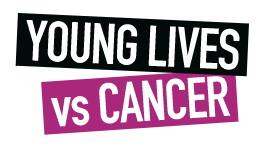The Board of Trustees:
- Provide a clear and inspiring strategic direction for the charity that gives young lives the best possible support within the resources we have
- Determine the purpose and values of the charity that are core to why we are here and who we are
- Develop organisational goals and achievable strategic plans that move us towards our goals
- Evaluate performance and hold us to account for meeting our targets.
Legally, a Trustee must:
- Ensure the charity pursues its objects – these are the reason we are here
- Act at all times in the best interests of children and young people with cancer and their families
- Comply with the charity’s governing documents
- Ensure the charity’s resources are managed responsibly and effectively to fulfil the charity’s objects
- Act with reasonable care and skill to benefit the work of the charity.
To fulfil this role, all Trustees will:
- Listen to and promote the voice of children, young people and their families and ensure their voice informs the governance of Young Lives vs Cancer
- Listen to the views of staff and volunteers and of supporters and contribute to an environment where staff and volunteers can, and want to, fight tirelessly for children and young people with cancer
- Understand the impact, reach and financial health of the charity, approving plans, budgets and policies as needed, and supporting innovations that make best use of our resources
- Review the risks and opportunities facing the charity and how we are managing these
- Provide support and challenge the Executive Team, understanding the difference in role between the Board and the Executive
- Ensure the charity has assurance of effective systems and controls, including for safeguarding
- Appoint the Chief Executive Officer and monitor their performance
- When needed – represent and promote Young Lives vs Cancer externally
- Contribute actively to the work of the Board, preparing for and attending Board and sub-Committee meetings
- Protect and enhance the reputation of the charity through your personal behaviour, governance oversight and activities on behalf of the charity.
You may also need to take part in appraisal, recruitment, grievance and disciplinary panels as required.
Every Trustee brings a different set of skills, knowledge and experience – they use these to help the Board of Trustees reach sound decisions.
This person will also (within 2 years) become the successor to the role of Designated Safeguarding Lead for the Board and Chair of the Safeguarding Committee.


